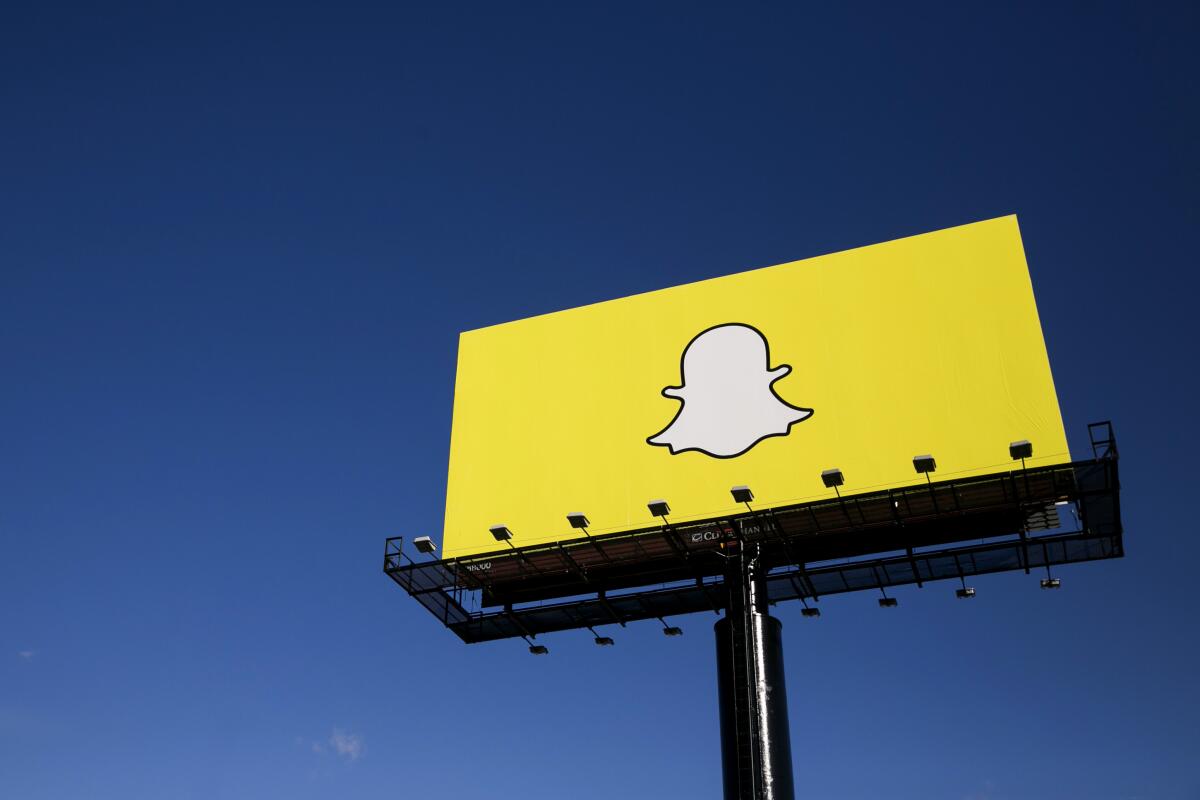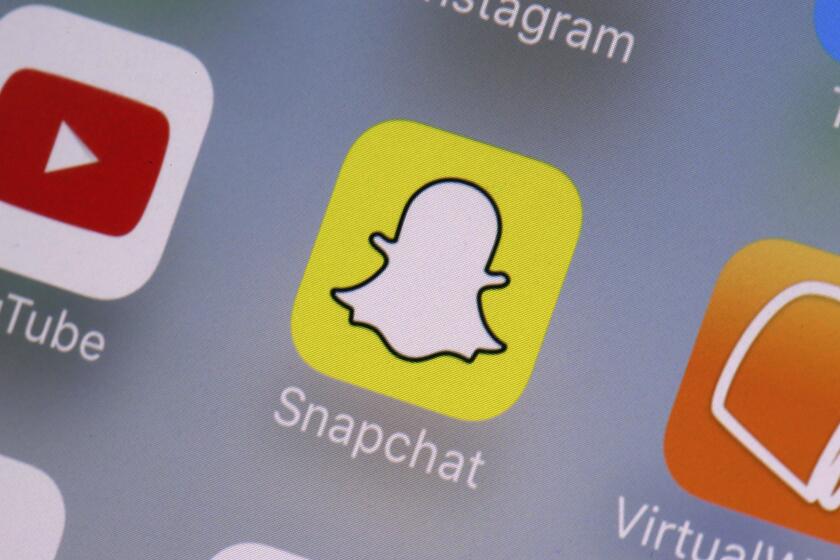Snap suspends anonymous Q&A apps Yolo and LMK after lawsuit over teen’s death

- Share via
Yolo and LMK, two Snapchat apps that allow users to send anonymous messages, are no longer available to users of the social media platform after parent company Snap suspended them Tuesday.
The suspension comes in response to a lawsuit filed Monday on behalf of Kristin Bride, the mother of an Oregon teen who took his own life in 2020 after receiving bullying messages via Yolo and LMK for months.
That suit alleges that Yolo and LMK violated consumer protection law by failing to live up to their own terms of service and policies, and that anonymous messaging apps facilitate bullying to such a degree that they should be considered dangerous products. Both were integrated with the Snapchat messaging platform through Snap Kit, the company’s suite of tools for third-party developers.
“In light of the serious allegations raised by the lawsuit, and out of an abundance of caution for the safety of the Snapchat community, we are suspending both Yolo and LMK’s Snap Kit integrations while we investigate these claims,” a Snap spokesperson wrote in a statement.
The lawsuit sought to have Yolo and LMK immediately banned from Snap’s platform, along with other apps that lack safeguards against cyberbullying. The plaintiffs, who seek to represent all users of Snapchat, Yolo and LMK as a class — a group consisting of 92 million users — are also requesting damages for the alleged harms and misrepresentations.
A lawsuit filed against the maker of Snapchat and two apps, YOLO and LMK, that use its platform, alleges the apps present an unreasonable risk of harm.
The case is part of a new wave of litigation that hopes to hold social media companies accountable despite Section 230 of the 1996 Communications Decency Act, which holds that online services are not liable for the actions of their users.
One potential way around Section 230 protection is the argument that some features are so dangerous in design that they’re essentially defective. The U.S. 9th Circuit Court of Appeals appeared to endorse this theory recently when it reversed a lower court’s ruling dismissing a case that revolved around a Snapchat filter that measured a user’s speed and added it to a post. Plaintiffs in the case argue the filter encouraged reckless driving that resulted in a fatal 2017 crash.
Another strategy to circumvent Section 230 immunity relies on consumer protection laws and the idea that tech companies are violating their terms of service and other promises made to consumers. In this case, the plaintiffs argue that Yolo promised users that it had a zero-tolerance policy for bullying or abusive behavior but failed to live up to those commitments by allowing abuse to continue for months on the platform and failing to reply to Bride when she contacted the company multiple times about her son’s death.
LMK’s terms of service contain similar promises, and the suit alleges that Snap similarly fell short of its stated policies by failing to remove Yolo and LMK from its platform.
LMK and Yolo did not respond to requests for comment.








